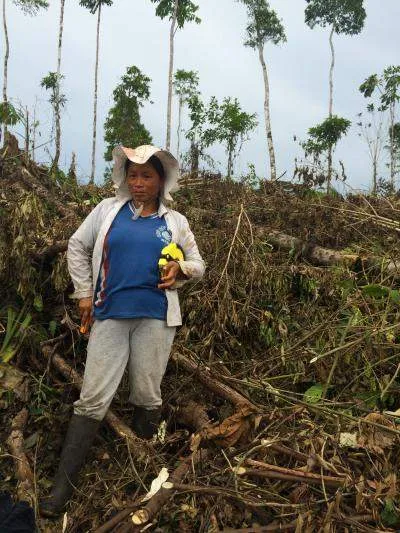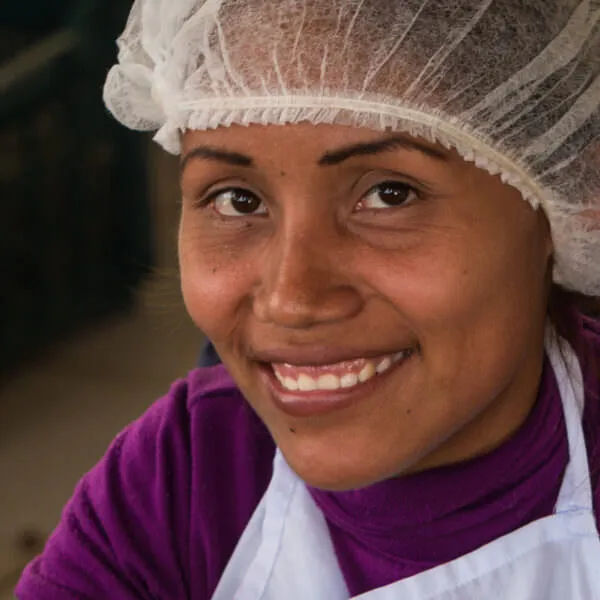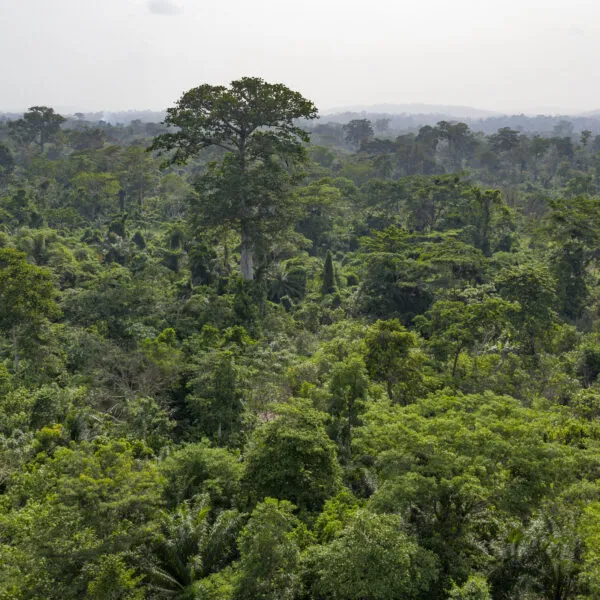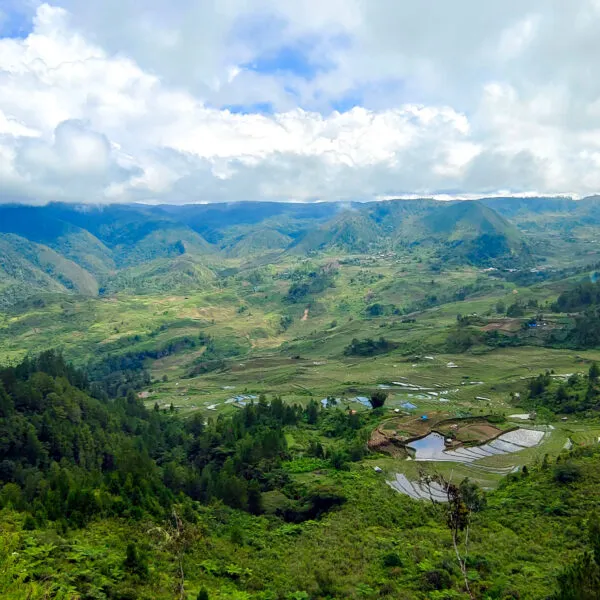The Rainforest Alliance and its partners addressed several principal threats to forests in the Andean Amazon region including expansion of the agricultural frontier, illegal or irresponsible logging, and cattle ranching.

The root causes of these threats are characterized by: the limited institutional capacity of local governments and communities for natural resource management; the limited participation in and access to programs for sustainable resource management and sustainable production chains by local groups; and weak organizational capacity and market linkages of local producers and operators to grow local economic opportunities.
Our vision was that as a result of Net-Zero Deforestation Zones (NZDZ), farmers and members of indigenous forest communities will significantly contribute to region-wide efforts in the Andean Amazon to achieve net zero deforestation by sustainably managing their agriculture and forest lands and benefitting from emerging government programs and private-sector finance that rewards these actors for the climate services their sustainably-managed lands provide.
Location
Amazon (Colombia, Ecuador, Peru)
Project Objectives
NZDZ aimed to achieve the goal of reducing deforestation, forest degradation, and greenhouse gas emissions and enhancing forest carbon stocks in pilot sites within Peru, Ecuador, and Colombia by enabling farming and forest-dependent communities to benefit from and contribute to actions that conserve forests, revert degradation, and enhance carbon stocks. Project activities were aligned under three interrelated objectives:
- Farmers, foresters, local and regional land managers, and government agencies reduce deforestation and mitigate climate change by adopting and implementing sustainable forest and land management.
- A community-based forest monitoring system is established whereby forest and agricultural communities with forested lands can achieve and contribute to monitoring, reporting, and verification of greenhouse gas emissions and removals.
- Build stakeholder and institutional capacity for regional and national REDD+ systems that reward sustainable land management as a scalable platform to combat deforestation and climate change.
Partner communities
NZDZ focused its efforts on high-priority landscapes in the region, working with the Wamani community and Hatun Sumako Parish in Napo, Ecuador; the Tres Islas and Infierno Indigenous communities in Madre de Dios, Peru; and the municipalities of Doncello, Florencia, and Paujil in Colombia.
Goals/Desired Impacts
- Delivered over 49,000 tCO2e reductions or removals over its lifetime by designing and implementing sustainable livelihoods alternatives to conserve and restore forests. Ongoing implementation of these alternatives is projected to reduce or remove over 1,373,000 tCO2e over a 20-year timeframe.
- Improved management of 102,029 acres (41,307 ha) of degraded pastureland and highly-threatened, mosaic agriculture and forest-dominated native community landscapes.
- Enhanced livelihoods of 586 rural producers and indigenous community members by facilitating access to incentives programs to reward them for sustainable land management and through enhancing the profitability of their forest conservation, sustainable forest management, reforestation, ranching, and agroforestry management actions.
- Strengthened the capacities of over 3,800 participants from ranching and native communities and key stakeholders from local to national governments to reduce deforestation and enhance carbon stocks through sustainable land management and engaging in emerging REDD+ frameworks.
- Created conditions for replicating low-emissions land management at scale throughout the Andean Amazon by supporting community, municipal, regional, and national government agencies in the design of nearly a dozen new PLARs ranging from inter-institutional agreements to regulations and incentives programs for sustainable land management.
- Facilitated implementation of three new programs to incentivize forest conservation, sustainable palm fruit extraction, and commercial reforestation.
- Generated and piloted 18 REDD+ tools; developed over 40 products, disseminating over 50,000 copies of these to stakeholders to raise awareness and facilitate application of project experiences; and delivered over 21,000 person-hours of training to key stakeholders on REDD+, climate change, and sustainable land management topics.
Partner Organizations
- Fundación Natura
- Consorcio para el Desarrollo Sostenible de la Eco-region Andina (CONDESAN)
- Corp. Gestión y Derecho Ambiental (ECOLEX)
- Asociación para la Investigación y el Desarrollo Integral (AIDER)
Funder
United States Agency for International Development (USAID)
Rainforest Alliance Contact
Mark Moroge, mmorge@ra.org





